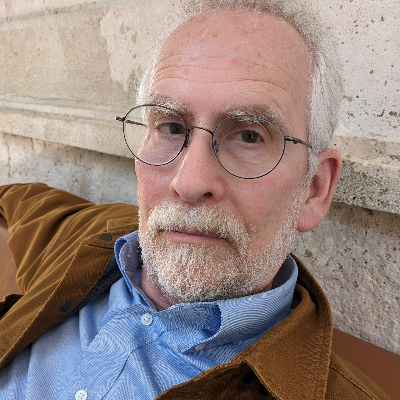Barking at a Ghost
Up here, a cool wind is blowing,
it’s started to drizzle,
but I don’t mind if the rain
soaks my feet,
my head, and my clothes.
I come here, on the mountain,
to look down from this height
at what used to be my house.
Those brutos tore it to pieces,
and now it’s just stony ground,
rubble and weeds.
Here I drift off,
and next thing, I’m seeing
the door that was scratched,
that we covered with green paint;
smelling the roof beams,
coffee sacks,
manure from the chicken coop,
dry stalks burning,
crackling in the flames;
I think I hear vultures,
laughing and calling,
as they circle a dead man.
My son said he used to see
guys like those vultures,
lurking near the house.
He liked playing
with beetles, liked
cutting the heads off matches
and lining them up,
to burn later;
he’d take little stones,
rub them together,
say they were bullets.
Here on the mountain,
a dog climbs up
to growl at the wind.
Maybe he sees my son,
maybe my son ran away
with the green-cap militias,
or maybe they killed him,
and now he’s a ghost.
I saw him last night,
by the mango tree.
He came in through the door
of the place where I’m staying,
a strange kind of angel,
his face painted black.
I come
to this mountain,
because now
this is my home.
I like to hear the stream
to see so much light
and so many strange insects,
like that gray beetle
no different than the ones
who played with my missing son.
It might be reincarnated.
My face is wet,
maybe from the drizzle,
maybe from crying.
I’ll stay here
until sunrise.
Children and Soldiers Arriving at Night
The night she noticed her breasts and stomach
bursting out of her blouse, fat from pregnancy,
half asleep, she saw a small brown boy,
dark eyes, red hair. Later, in the Indian hut
in the middle of the mudflats, near the bank
of a dying river, where still a child herself,
living with her parents and elders,
her contractions came suddenly, seizing her in bed.
An unknown midwife pulled from her uterus
moans, blood clots, pieces of tissue,
the deformed creature, impossible to become a child.
Her room stayed silent for days. She slept for hours,
for days, she’d drink water, sleep again.
12 AM, the small brown boy returns,
with red hair, with the very dark eyes,
who in defiance of Newton walks in the air,
passes near her without blinking, without seeing her.
Getting up, she cries, reaches out her hands,
but the fleshless boy avoids her grasp.
Back in bed, she lies in darkness. From outside,
she hears neighing, the voice of that soldier
who broke down her door, tore her dress,
left her pregnant, smeared with spit,
unclean from kisses, aching from blows.
She curls into herself, becomes a ball.
Inside, everything hurts, is bursting,
her exploding body is a miscarried fetus.
The soldier’s voice
and the horse’s hoofbeats approach her doorway.
She knows he is coming to see her.
Men With Hats
Back in the days when men wore them
to protect against rain and cold,
a guy in a black hat
walks down an alley in Bogotá.
He stops at a corner,
where he’s joined by two more
Chepitos, debt collectors
in black hats. They settle in
at a table in a café.
They chat and laugh.
In their dark suits,
they look like gentlemen
but the hats conceal
sanguinary grins,
sidelong glances at their prey,
a fourth guy,
who reads at a table in the corner,
who hides under a gray hat,
who sips coffee and to his side observes
three guys in hats looking at him.
In the days
when hats were in fashion,
at an airport in Colombia,
women and men in hats
crowd together
and don’t notice the erratic flying
of an unfamiliar bird
above their heads.
People wave their handkerchiefs
to a man who from the boarding steps
lifts a hat
that had obscured his face
and everyone sees the smile of Gardel,
who boards a plane,
which will be dragged by the wind
off the runway,
colliding with another,
bursting into flames.
And fifteen years later in Bogotá,
Gaitán, the great caudillo,
used to wear one.
On the day of his death,
in that rainy city,
an entourage of friends escorted him.
They were laughing;
someone whispered
a secret in his ear,
just as he was shot.
That day, he was wearing
his hat,
but it was just a simple hat
to ward off rain,
not a knight’s helmet.
The bullet pierced the felt,
cut the ribbon,
and penetrated the brain.
Hats were worn by gentlemen.
In front of a white
house, brick
with dark window-bars,
my father with my grandfather,
both wearing hats,
smile at the camera.
Some crows
on the electric lines
warn a downpour is coming
but they, the men of the house,
gentlemen in hats,
just pick up their umbrellas
to go for a walk,
to buy the newspaper,
to have a coffee.
I never saw them in hats again,
only in an old photo
that was lost.
And worn by those who were not such gentlemen,
like the guy with narrow eyes
in a workman’s outfit
and a ragged cloth hat,
who carried bricks
at a construction site
and from a corner of our house
signaled to my sister and me, aged 3 and 4,
to come to him
and reached for us
with his dark, filthy hands.
We ran into the house.
My father came out with a revolver.
Everything is clouded in my memory.
But I can’t forget those hands,
the dirt under his long fingernails,
and his brown hat.
And I’ve seen them worn by ghosts.
Perhaps that same man
was the hat-wearing specter
that at night, a few years later,
stood in front of my closet door.
But if I closed it, he stayed inside
agonizing in the dark, among hangers,
patent leather shoes, dresses, and school uniforms.
Translated by George Franklin & Ximena Gómez



